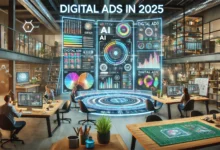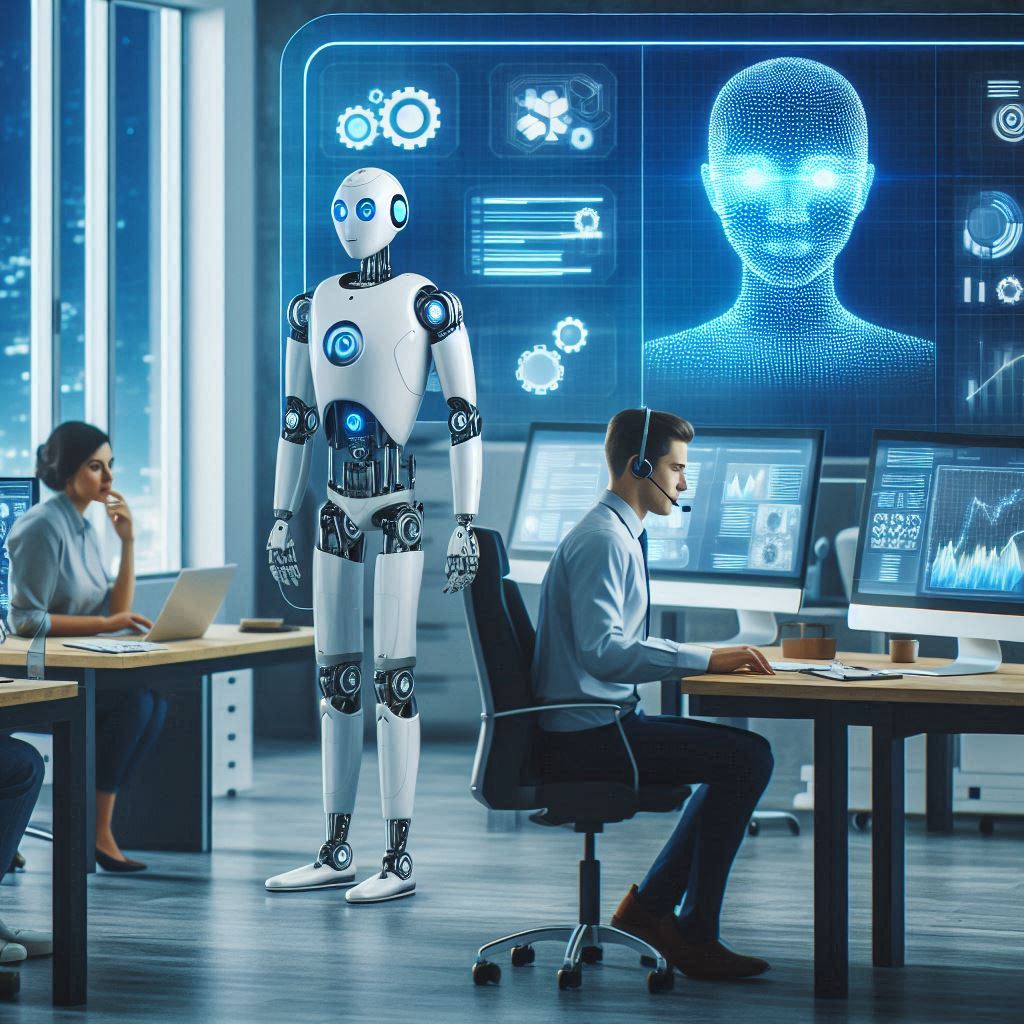Human-AI Partnerships for Powerful Results

Introduction
Human-AI Partnerships Shaping the Future of Content Creation: In today’s rapidly evolving digital world, content creation is undergoing a transformation powered by the synergy of artificial intelligence (AI) and human creativity.
AI is now at the forefront of this shift, enabling content creators to streamline workflows, analyze trends in real time, and personalize experiences like never before. Yet, despite AI’s growing capabilities, one truth remains: the human touch—our creativity, empathy, and intuition—remains essential for crafting content that truly resonates with audiences.

This powerful blend of human ingenuity and AI-driven efficiency is reshaping the future of content marketing. Brands and creators that master this collaboration are poised to deliver engaging, relevant, and authentic content in an increasingly crowded digital space. By leveraging AI for data-driven insights and pairing it with emotional storytelling and cultural awareness, creators can unlock new levels of impact and engagement.
In this article, we’ll explore the dynamic partnership between AI and human expertise that is revolutionizing content creation. Discover practical strategies, real-world examples, and key insights on how to harness this collaboration to craft content that not only captures attention but leaves a lasting impact.
AI as a Powerful Efficiency Tool in 2024 Content Marketing
In the fast-paced digital world of 2024, content creators face constant pressure to produce high-quality content at scale. This is where AI becomes an invaluable ally, transforming the way content marketing is approached. No longer just a tool for automation, AI empowers marketers with unparalleled efficiency, precision, and speed, allowing them to focus on creativity, strategy, and audience engagement.
AI tools such as Google Analytics, Jasper, and others have become essential in today’s content marketing landscape. They swiftly analyze vast datasets, identify trends, and provide actionable insights that help marketers make data-driven decisions, boosting engagement and driving personalized experiences. By automating time-consuming tasks like keyword research, content scheduling, and trend analysis, AI enables content creators to focus on what matters most: crafting authentic, impactful content that resonates with their audience.
Let’s dive into three key ways AI enhances content marketing efficiency in 2024:
- Data Analysis and Trend Identification: AI’s ability to analyze large volumes of data in real time allows marketers to spot emerging trends and optimize their strategies accordingly. With AI, you can stay ahead of the competition by adapting content to what’s resonating most with audiences.
- Automating Repetitive Tasks: From social media scheduling to keyword research, AI automates mundane tasks that previously took up valuable time. This frees up marketers to invest their energy into more strategic initiatives and creative endeavors.
- Personalized Content Recommendations: AI algorithms can segment audiences and deliver personalized content recommendations that boost engagement. By tailoring content to the preferences of specific audience segments, marketers can ensure relevance and foster stronger connections.
By leveraging AI to enhance efficiency and precision, brands can stay competitive in the ever-evolving content landscape while still delivering the creativity and authenticity that drive lasting audience engagement.
Human Creativity: The Irreplaceable Element in Content Marketing
While AI can supercharge efficiency and precision in content marketing, it’s human creativity that breathes life into content, transforming it from functional to memorable. AI may generate data-backed insights, suggest trending topics, or streamline processes, but it lacks the ability to tap into the emotional depth, cultural relevance, and authentic storytelling that only humans can provide.
In a world flooded with content, it’s the human touch that sets brands apart. Storytelling that evokes laughter, nostalgia, or inspiration—combined with an understanding of cultural context—builds genuine connections with audiences. AI can suggest keywords, but it’s the creativity and intuition of human marketers that shape a brand’s voice, making it consistent and relatable across different channels.
Here are three critical ways human creativity shines in content marketing:

- Storytelling with Emotional Depth: AI can identify what topics might resonate, but only humans can infuse content with the emotional depth needed to engage on a personal level. Stories that reflect real experiences and emotions create lasting bonds with audiences, fostering loyalty and trust.
- Maintaining a Brand’s Unique Voice: AI can assist with content production, but human marketers are responsible for crafting a consistent and authentic brand voice. Whether it’s playful, serious, or inspirational, a brand’s tone requires creativity and an understanding of the audience’s preferences—something that AI alone cannot provide.
- Ensuring Cultural Relevance: Understanding and adapting to cultural nuances is critical in content marketing. While AI can analyze large datasets, it’s human insight that ensures content respects and resonates with diverse cultures, fostering inclusivity and avoiding tone-deaf messaging.
In an AI-driven content landscape, human creativity remains irreplaceable. It’s what turns data into stories, insights into emotional connections, and content into a tool for building meaningful, long-lasting relationships with audiences.
Case Studies: Successful Human-AI partnerships in Content Marketing
Real-world examples illustrate the transformative power of combining AI’s data-driven capabilities with human creativity in content marketing. Brands that successfully harness this partnership are creating campaigns that are both highly efficient and emotionally impactful. By blending AI’s precision with the strategic insights of human marketers, these companies are driving deeper engagement and producing content that resonates.
Let’s explore three case studies that demonstrate the effectiveness of human-AI collaboration in content creation:

- Netflix: Netflix uses AI algorithms to recommend personalized content to its users based on viewing history and behavior patterns. However, it’s the creative teams that produce engaging trailers, write compelling storylines, and curate culturally relevant shows and movies. The human-AI collaboration ensures that while AI enhances the personalization process, the storytelling remains authentic and connects with diverse global audiences.
- Nike: Nike leverages AI to analyze customer preferences and behavior, providing data-driven insights that inform marketing strategies. AI-driven tools help personalize product recommendations, but it’s Nike’s human creatives who design emotionally compelling campaigns like “Just Do It,” blending data with storytelling that inspires and motivates consumers. The result is a seamless balance between personalization and brand authenticity.
- BuzzFeed: Known for its viral content, BuzzFeed utilizes AI to analyze social media trends and predict what types of content will perform well. AI tools help the brand optimize headlines and suggest content formats, but it’s human writers and editors who add the creative flair that makes BuzzFeed’s content entertaining and shareable. This combination ensures that BuzzFeed stays ahead of trends while maintaining a unique voice that resonates with its audience.
These examples show that while AI can enhance productivity and personalization, human creativity is essential for crafting narratives that evoke emotion and build brand loyalty. By blending the strengths of AI with human intuition, brands like Netflix, Nike, and BuzzFeed are setting new standards for innovation and engagement in content marketing.
Challenges and Ethical Considerations in Human-AI Content Marketing
While the integration of AI into content marketing offers incredible opportunities for efficiency and personalization, it also introduces significant challenges and ethical concerns. As more brands rely on AI to produce and distribute content, issues related to transparency, bias, and accountability become increasingly important. Balancing the efficiency of AI with human oversight is crucial to ensure ethical standards are maintained and trust is preserved with audiences.
Here are some of the key ethical challenges in human-AI content collaborations:

- Bias in AI-Generated Content: AI tools often learn from data that can contain inherent biases, leading to content that might unintentionally reflect gender, racial, or cultural prejudices. Without proper oversight, these biases can alienate segments of an audience and damage a brand’s reputation. Human creators play a crucial role in identifying and mitigating these biases, ensuring content is inclusive and culturally sensitive.
- Transparency in AI-Driven Content: As AI becomes more involved in content production, it’s important to maintain transparency with audiences about how content is generated. Consumers need to know when they are engaging with AI-created materials versus human-created content. Being upfront about the use of AI helps build trust and fosters accountability in content marketing.
- Intellectual Property and Content Ownership: With AI-generated content, questions about ownership and intellectual property rights often arise. Who owns the rights to content created by AI systems, especially when these systems draw from vast datasets? Ensuring that both human creators and AI systems operate within legal and ethical frameworks is essential to protecting intellectual property and ensuring fairness in content creation.
To navigate these challenges, companies must apply human judgment to make balanced decisions. Ethical AI usage in content marketing requires transparency, cultural awareness, and an ongoing commitment to fairness and inclusivity. By addressing these concerns, brands can foster a more responsible and trustworthy AI-powered content future.
The Future of Human-AI Content Creation Partnerships
As AI technology continues to evolve, the fusion of human creativity and artificial intelligence is shaping the future of content marketing. By combining AI’s efficiency and data-driven precision with the emotional intelligence and storytelling abilities of human marketers, brands can create content that is both highly relevant and deeply resonant. However, the key to future success lies not only in leveraging AI’s capabilities but in maintaining the human touch that turns data into meaningful connections.
The most successful content strategies will be those that balance automation with creativity, allowing AI to handle repetitive tasks while human marketers focus on crafting authentic narratives and addressing ethical considerations. Transparency, cultural awareness, and emotional impact will become essential pillars of content marketing in a world increasingly powered by AI.
In embracing this collaboration, brands can stay ahead in an ever-evolving digital landscape. By using AI to amplify—rather than replace—human creativity, companies can produce content that not only captures attention but builds lasting relationships with audiences.
The future of content creation lies in mastering this human-AI partnerships, ensuring that technology enhances rather than diminishes the authenticity, empathy, and cultural relevance that make content truly impactful.









2 Comments